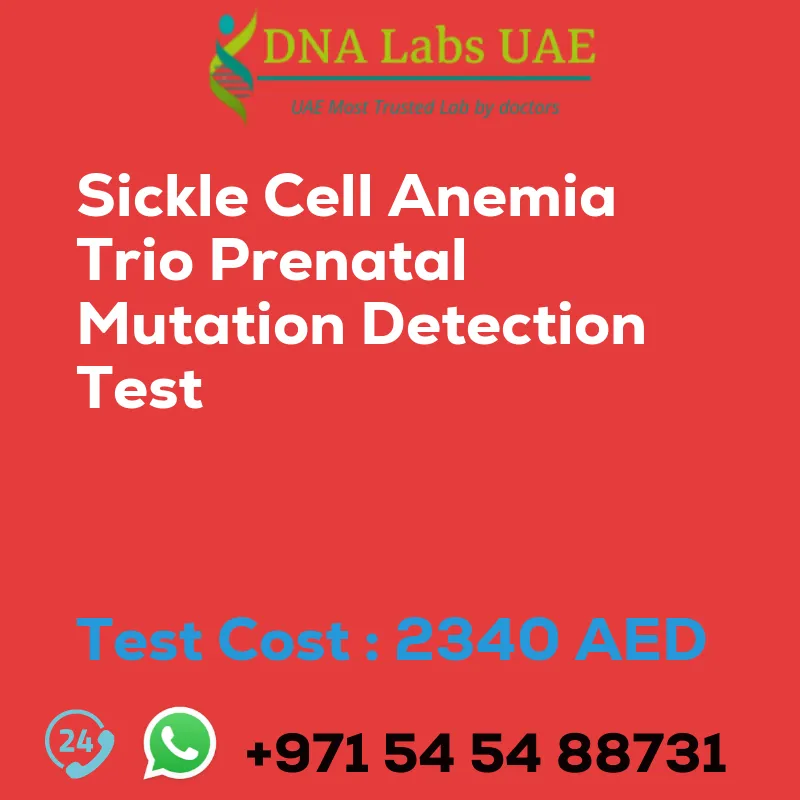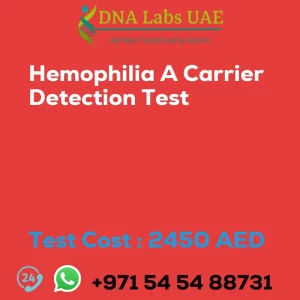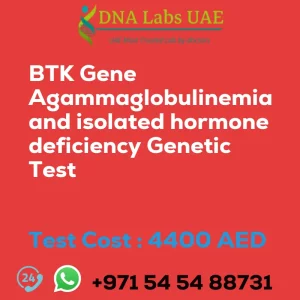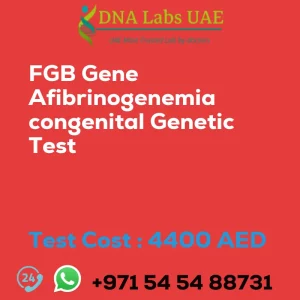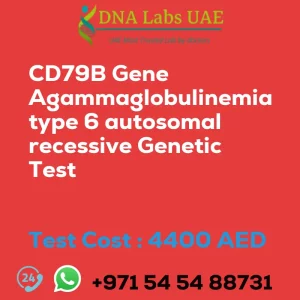Sickle Cell Anemia Trio Prenatal Mutation Detection Test
Test Cost: AED 2340.0
Symptoms, Diagnosis, and Test Details
Sickle Cell Anemia Trio Prenatal Mutation Detection Test is a genetic test specifically designed for prenatal testing to detect mutations in the genes associated with sickle cell anemia. This test helps determine if the fetus has inherited the genetic mutation that causes sickle cell anemia.
Sickle cell anemia is an inherited blood disorder characterized by abnormal hemoglobin, which causes red blood cells to become rigid and sickle-shaped. This can lead to various complications, including anemia, pain crises, organ damage, and increased susceptibility to infections.
The Trio Prenatal Mutation Detection Test analyzes the DNA of the fetus and both parents to determine if the fetus has inherited the mutation. The test specifically looks for mutations in the HBB gene, responsible for producing the protein that makes up hemoglobin.
The test involves collecting a sample of the mother’s blood and, if available, a sample from the father. These samples are then analyzed in a laboratory to identify any mutations in the HBB gene. If a mutation is detected, it means that the fetus has inherited the mutation and is at risk of developing sickle cell anemia.
Expectant parents can benefit from this test by making informed decisions about their pregnancy and planning for any necessary medical interventions or treatments. Healthcare providers can also use the test results to monitor the health of the fetus and provide appropriate care during and after pregnancy.
Test Components
- HBB
Price: AED 2340.0
Sample Condition
4 mL (2 mL min.) whole blood in 1 Lavender top (EDTA) tube from both parents AND 10 mL (5 mL min.) Amniotic fluid in a sterile screw capped container. Ship refrigerated. DO NOT FREEZE.
Report Delivery
Sample Mon by 11 am; Report Fri
Method
PCR, Sequencing
Test Type
Sickle cell anemia
Doctor
Hematologist
Test Department
Molecular Diagnostics
Pre Test Information
Duly filled Prenatal Genetic testing Consent Form (Form 18) and Genomics Clinical information requisition form (Form 20) is mandatory.
It is important to note that the Trio Prenatal Mutation Detection Test is a specialized genetic test and should be performed by a qualified healthcare provider or genetic counselor. They can provide detailed information about the test, its accuracy, and the implications of the results.
| Test Name | SICKLE CELL ANEMIA TRIO PRENATAL MUTATION DETECTION Test |
|---|---|
| Components | *HBB |
| Price | 2340.0 AED |
| Sample Condition | 4 mL (2 mL min.) whole blood in 1 Lavender top (EDTA) tube from both parents AND 10 mL (5 mL min.) Amniotic fluid in a sterile screw capped container. Ship refrigerated. DO NOT FREEZE. Duly filled Prenatal Genetic testing Consent Form (Form 18) and Genomics Clinical information requisition form (Form 20) is mandatory. |
| Report Delivery | SampleMon by 11 am; Report Fri |
| Method | PCR, Sequencing |
| Test type | Sickle cell anemia |
| Doctor | Hematologist |
| Test Department: | MOLECULAR DIAGNOSTICS |
| Pre Test Information | Duly filled Prenatal Genetic testing Consent Form (Form 18) and Genomics Clinical information requisition form (Form 20) is mandatory. |
| Test Details |
The Sickle Cell Anemia Trio Prenatal Mutation Detection Test is a genetic test used to detect mutations in the genes associated with sickle cell anemia. It is specifically designed for prenatal testing, meaning it is performed during pregnancy to determine if the fetus has inherited the genetic mutation that causes sickle cell anemia. Sickle cell anemia is an inherited blood disorder characterized by abnormal hemoglobin, which causes red blood cells to become rigid and sickle-shaped. This can lead to various complications, including anemia, pain crises, organ damage, and increased susceptibility to infections. The Trio Prenatal Mutation Detection Test analyzes the DNA of the fetus and both parents to determine if the fetus has inherited the mutation. The test specifically looks for mutations in the HBB gene, which is responsible for producing the protein that makes up hemoglobin. The test involves collecting a sample of the mother’s blood, as well as a sample from the father (if available). These samples are then analyzed in a laboratory to identify any mutations in the HBB gene. If a mutation is detected, it means that the fetus has inherited the mutation and is at risk of developing sickle cell anemia. This test can provide important information for expectant parents, allowing them to make informed decisions about their pregnancy and plan for any necessary medical interventions or treatments. It can also help healthcare providers monitor the health of the fetus and provide appropriate care during and after pregnancy. It is important to note that the Trio Prenatal Mutation Detection Test is a specialized genetic test and should be performed by a qualified healthcare provider or genetic counselor. They can provide detailed information about the test, its accuracy, and the implications of the results. |

